QuestionI have a standardbred which is 16 years old. She has developed a cough, most prevalant when she is eating. My vet said I have dusty hay, but I have other horses that eat the same hay and they are not coughing. What can I do to treat this problem?
AnswerHi Denise,
Thank you for your question. A horse that coughs when eating hay is generally reacting to dust or mold spores in the hay. Although the cough is associated with the exposure to the dust, it is not so much an allergy issue as a sensitivity to the dust. This particular horse may be more sensitive to the dust than the other horses (has a more reactive system) or she may have been exposed to more dust in the past than other horses...developing a more rapid reaction than the other horses. This may be an early sign that the mare is developing the heaves or COPD (Chronic Obstructive Pulmonary Disease). The heaves is a respiratory condition where horses experience difficulty breathing because their airways have been exposed to poor air quality over a long period of time. In fact, it is unusual to see horses with the heaves much before the age of 7 or 8 unless having been kept in severe conditions. The heaves can not be cured but only managed. The poor air quality can be from dust (in the hay or from a dusty environment)or can be from ammonia fumes from poorly ventilated/cleaned stalls. I am not suggesting that you have poor management...as this condition develops over time and may have in fact started before you ever owned the horse. Also, some horses defense systems are highly sensitive so whatever conditions that have caused this in your mare may not have been severe enough to elicit the same reaction from another horse. A horse with the heaves doesn't start breathing with difficulty all of a sudden, and the cough you are suggesting is one of the first signs that she has a lasting condition. I have also seen some horses exhibit 'seasonal' type breathing allergies that ultimately were the warning signs that the horse has the heaves.
So if this is indeed the case for your horse, as was the vet's suggestion, there are a few things that you can do to help ease the cough...and hopefully nip the condition in the bud. The most ideal would be to allow the horse to graze fresh forage, eliminating the concern for dust altogether. Otherwise you will need to deal with hay quality. I realize that it is sometimes impossible to get rid of all of your hay if it is dusty, as you may not have anything else to feed. To eliminate the initially concern of the cough, you should consider soaking or steaming the hay. This is easier of course if you are feeding each horse individually and if you are not you may really need to think about a way of separating your mare form the others at feed time. The hay can be sprayed with water, but more ideally should be soaked for several hours. There are so many ways of soaking the hay but as long as it sits in water you're all set. You can use smaller garbage can type containers, put a feedings worth of hay in it and fill it with water soaking the hay as you go. Or, you could invest in a large rubbermaid water trough in which you could put an entire bale and soak it. They have a plug at the bottom which could be used to easily drain the tub when you are done. Be careful not to soak hay too long in warm weather as it could start to ferment and smell really bad, keeping your horse from eating it anyway. There are also a number of new hay steamers on the market, designed specifically to improve the physical quality of hay. Not only do the steamers eliminate the dust, but they also destroy the mold spores that are usually responsible for creating the dust.
Anti-histamines may provide some relief from the cough but there is a definite cost associated with their use, and some people prefer not to medicate heavily. I have found grape seed extract to be a great natural anti-histamine and anti-inflammatory and you may find it really helps if the cough gets to be severe at certain times. Basic Equine Nutrition makes a really nice pure form of the product that I use extensively for this purpose...and the horses eat it readily. You can also manage the 'allergic' or inflammatory response through diet. By feeding supplemental dietary fat high in Omega 3 fatty acids can help reduce inflammation and improve tissue repair...so although you may not be able to cure the problem, you certainly could prevent it from getting any worse. For horses, the most ideal source of Omega 3s is Flax. Flax provides the ideal Omega 6 to Omega 3 fatty acid ratio required for horses (5:1) to optimize the healing process. You can buy and feed Flax in many different forms, but I have always found that feeding milled flax seed (it has been ground without adding or removing any nutrients) is the most effective, palatable and economical source. I buy milled flax in a plain brown 25kg paper bag for under $30. In your mare's case you would want to feed about 250 grams (1/2lb) per day, or 2 cups per day, but you can technically feed up to 2.5 kg (5.5lbs) per day although I would not suggest that much. Don't underestimate how valuable a tool this can be in helping fight degenerative disorders.
I hope this has helped in some way, and good luck.
Thanks, Corlena

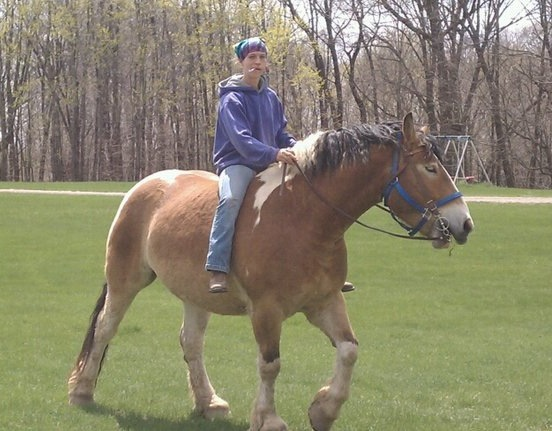 My new draft horse.....
Question
Bubbs Gentle Giant
I have just pu
My new draft horse.....
Question
Bubbs Gentle Giant
I have just pu
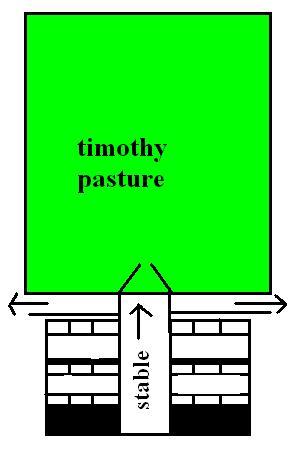 stables inside my pasture
Question
stables inside my past
hello maam, can i set l
stables inside my pasture
Question
stables inside my past
hello maam, can i set l
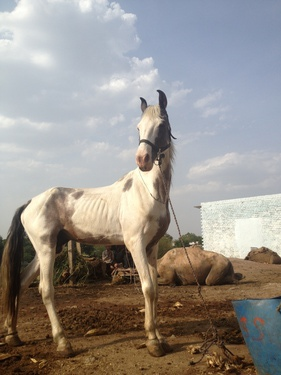 improving body condition
Question
horse
hello maam, how can i improve the
improving body condition
Question
horse
hello maam, how can i improve the
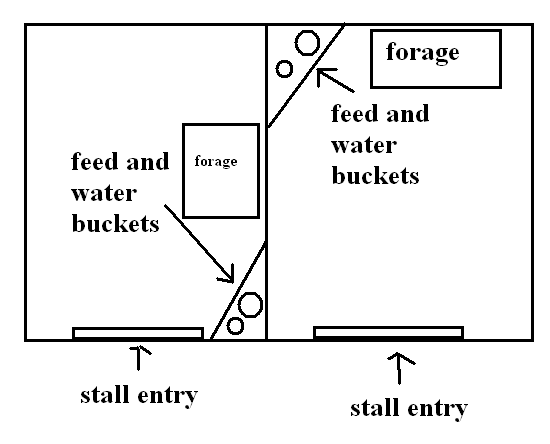 position for feed box, water bucket in the stall
Question
position for feed box,
hello, where should the
position for feed box, water bucket in the stall
Question
position for feed box,
hello, where should the
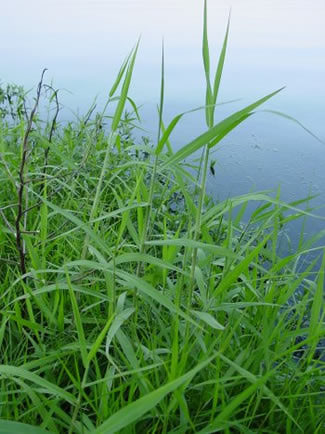 para grass for my thoroughbred
Questionpara grass
QUESTION: hello maam, can i f
para grass for my thoroughbred
Questionpara grass
QUESTION: hello maam, can i f